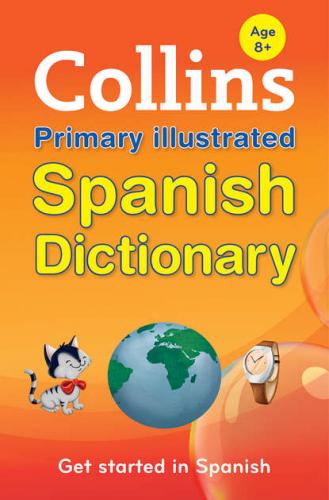costar VERB
to cost Cuesta mucho dinero. It costs a lot of money. Me costó diez euros. It cost me ten euros. Las matemáticas le cuestan mucho. He finds maths very difficult.
¿Cuánto cuesta? How much is it?
la costilla NOUN
rib
la costumbre NOUN
1 habit Tiene la mala costumbre de mentir. He has the bad habit of lying.
2 custom una costumbre británica a British custom Se le olvidó, como de costumbre. He forgot, as usual.
cotillear VERB
to gossip
crecer VERB
to grow Me crece mucho el pelo. My hair grows very fast. ¡Cómo has crecido! Haven’t you grown!
creer VERB
1 to believe Nadie me cree. Nobody believes me. ¿Crees en los fantasmas? Do you believe in ghosts?
2 to think No creo que pueda ir. I don’t think I’ll be able to go.
Creo que sí. I think so. Creo que no. I don’t think so.
la crema NOUN
cream Me pongo crema en las manos. I put cream on my hands. la crema solar suncream
la cremallera NOUN
zip Súbete la cremallera. Do your zip up.
el cristal NOUN
1 glass una botella de cristal a glass bottle En el suelo había cristales rotos. There was some broken glass on the floor.
2 window pane Los niños rompieron el cristal. The children broke the window pane. limpiar los cristales to clean the windows
el cromo NOUN
picture card
la croqueta NOUN
croquette croquetas de pollo chicken croquettes
el cruce NOUN
crossroads En el cruce hay un semáforo. There are traffic lights at the crossroads. un cruce de peatones a pedestrian crossing
crudo (FEM cruda) ADJECTIVE
raw las zanahorias crudas raw carrots
crujiente (FEM crujiente) ADJECTIVE
crunchy
la cruz (PL las cruces) NOUN
cross
cruzar VERB
1 to cross
2 to fold Nos cruzamos en la calle. We passed each other in the street.
el cuaderno NOUN
notebook
un cuaderno de ejercicios an exercise book
la cuadra NOUN
stable
cuadrado (FEM cuadrada) ADJECTIVE, MASC NOUN
square dos metros cuadrados two square metres
el cuadro NOUN
painting
cual PRONOUN (PL cuales)
1 who el primo del cual te estuve hablando the cousin who I was telling you about
2 which la ventana desde la cual nos observaban the window from which they were watching us
cuál PRONOUN (PL cuáles)
1 what No sé cuál es la solución. I don’t know what the solution is.
2 which one ¿Cuál te gusta más? Which one do you like best? ¿Cuáles quieres? Which ones do you want?
cualquier ADJECTIVE ▷see cualquiera
cualquiera (FEM cualquiera)
cualquiera can be an adjective or a pronoun.
A ADJECTIVE
any Puedes usar un bolígrafo cualquiera. You can use any pen. No es un empleo cualquiera. It’s not just any job.
cualquier cosa anything en cualquier sitio anywhere
B PRONOUN
1 anyone Cualquiera puede hacer eso. Anyone can do that. cualquiera que le conozca anyone who knows him
2 any one Me da igual, cualquiera. It doesn’t matter, any one. en cualquiera de las habitaciones in any one of the rooms cualquiera que elijas whichever one you choose
3 either ¿Cuál de los dos prefieres? — Cualquiera. Which of the two do you prefer? — Either.
cuando CONJUNCTION
when Lo haré cuando tenga tiempo. I’ll do it when I have time. Puedes venir cuando quieras. You can come whenever you like.
cuándo ADVERB
when ¿Cuándo te va mejor? When suits you? No sabe cuándo ocurrió. He doesn’t know when it happened.
cuanto (FEM cuanta) ADJECTIVE, PRONOUN
Termínalo cuanto antes. Finish it as soon as possible. Cuanto más lo pienso menos lo entiendo. The more I think about it, the less I understand it. Cuantas menos personas haya mejor. The fewer people the better. En cuanto oí su voz me eché a llorar. As soon as I heard his voice I began to cry. Había sólo unos cuantos invitados. There were only a few guests.
en cuanto a as for
cuánto (FEM cuánta) ADJECTIVE, PRONOUN
1 how much ¿Cuánto dinero tienes?
